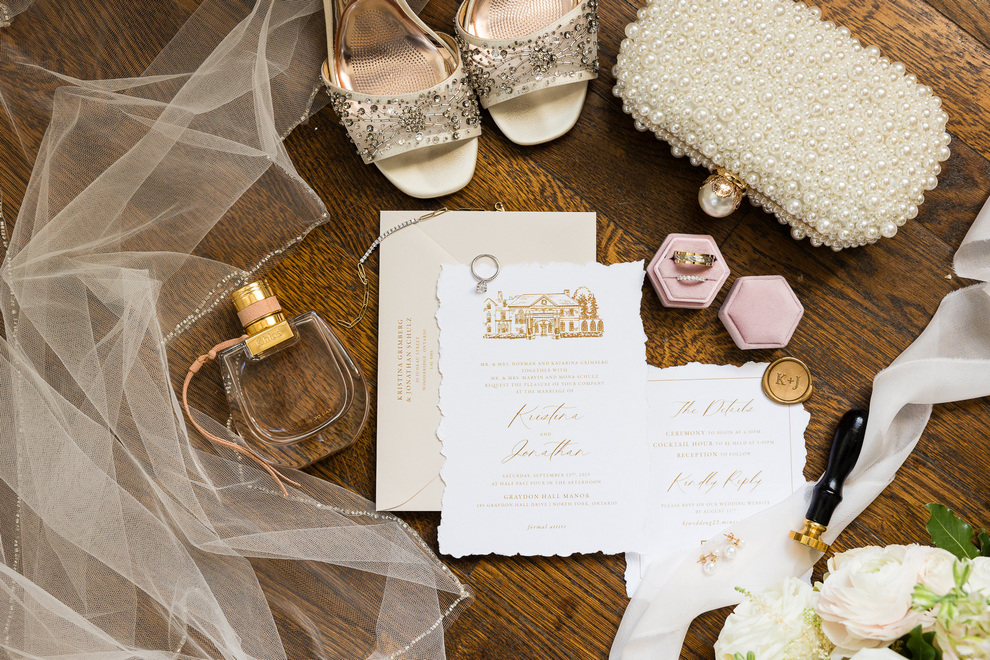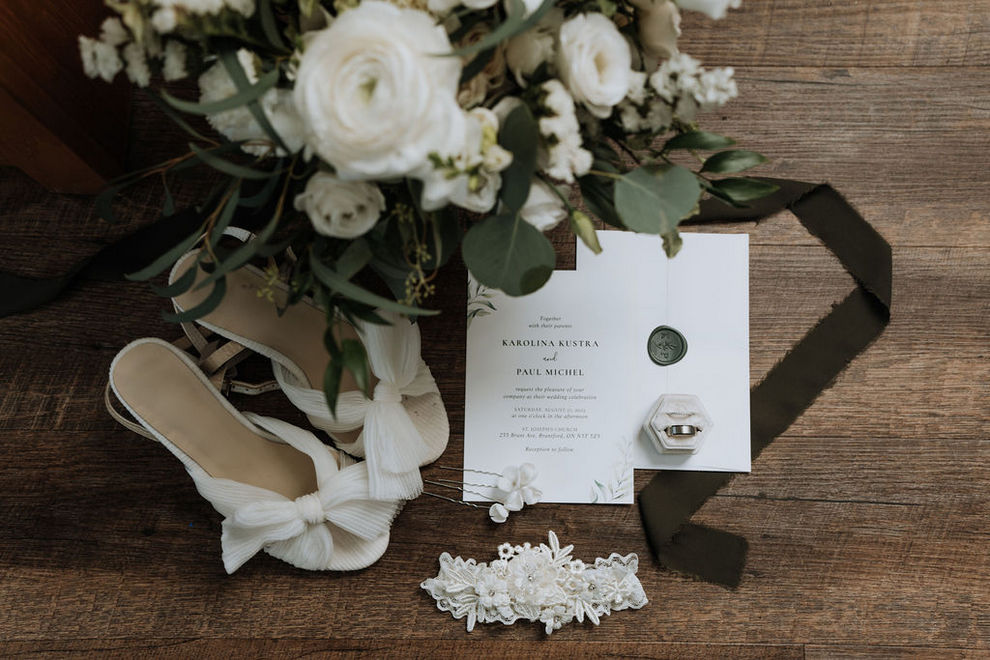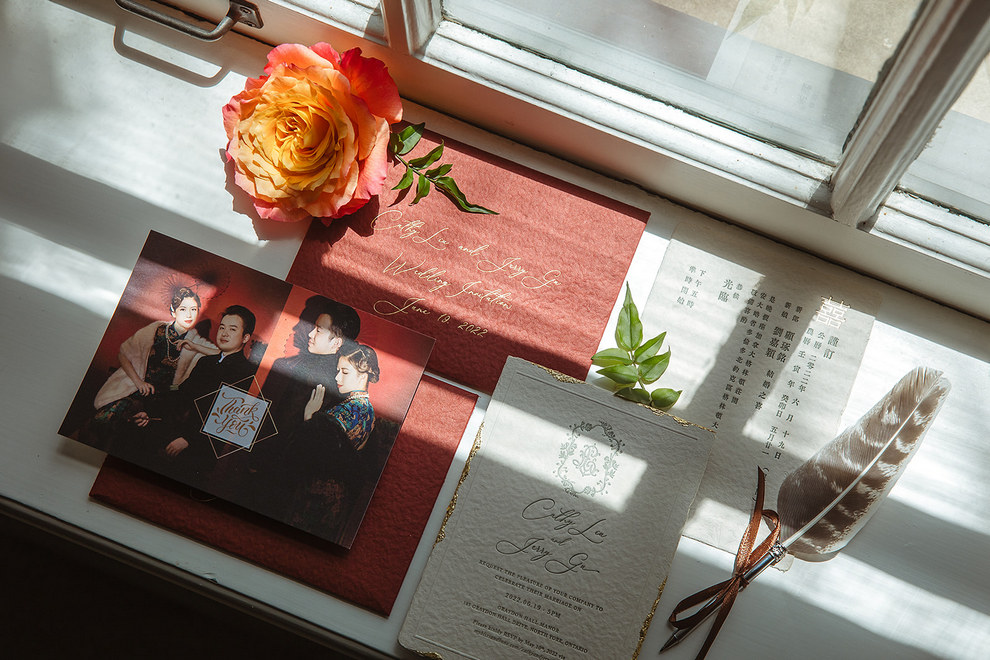One of the most important steps in your wedding planning journey is figuring out when should wedding invitations be sent out. It’s more than just a formality timing can influence how smoothly your day unfolds and how many guests can actually make it. Whether you’re planning a grand celebration or a more intimate destination wedding, sending out your invitations at the right time ensures that your loved ones have enough notice to join in on your special day.
However, determining the perfect timeline isn’t always straightforward. From coordinating with out-of-town guests to setting a clear RSVP deadline, there are various factors to consider when deciding when to mail those all-important invites. This guide will walk you through everything you need to know about getting the timing right, so you can focus on what really matters—enjoying your big day.
Photo Courtesy of Avenue Photo
Factors That Influence When to Send Out Wedding Invitations
Several elements can impact when you should send out your invitations. Let’s explore the most important ones:
Wedding Date
The time of year you’re getting married is key in determining when to send out your invitations. If your wedding falls during a busy season, such as summer or around major holidays, your guests may have packed schedules. Sending invitations earlier will help them plan accordingly. For off-season weddings, like those in the winter or early spring, there’s typically less urgency, but it’s still a good idea to send them early enough so people can make arrangements. Always consider what other events might be competing for your guests’ attention when setting your invitation timeline.
Guest List Size
The size of your guest list plays a significant role in deciding when to send your invitations. A smaller, intimate wedding might allow for a more flexible timeline, as you can more easily manage RSVPs. However, larger weddings(especially those with 100+ guests) require more lead time for planning, managing responses, and creating seating arrangements. Additionally, with a bigger guest list comes a higher likelihood of last-minute changes, which makes an early RSVP deadline all the more crucial.
Location
Your wedding location can dramatically influence the timeline for sending out invitations. For local weddings, the standard 6-8 weeks before the event is usually sufficient. However, if your wedding is a destination celebration or if many of your guests will need to travel, consider sending invitations 3-4 months in advance. This allows guests enough time to book flights, secure accommodations, and plan other travel logistics, without feeling rushed or overwhelmed.
RSVP Deadline
Establishing an RSVP deadline that gives you ample time to finalize your guest list is crucial for a smooth planning process. You’ll need this information to lock in important details like catering numbers, seating arrangements, and even venue capacity. Ideally, set your RSVP deadline for 3-4 weeks before the wedding, giving you enough time to follow up with guests who haven’t responded and to make any last-minute adjustments to your plans.
Photo Credit Shannon Ford Photography
When Should You Send Out Wedding Invitations?
Now that you have a clear understanding of what influences your timeline, let’s look at when you should actually send out your wedding-related communications, including save-the-dates and formal invitations.
When Do I Send Save-the-Dates?
Save-the-dates serve as an early heads-up for your guests, especially if you’re planning a wedding far in advance or during peak travel times. These should be sent out 6 to 8 months before your wedding day. If you’re planning a destination wedding or if you expect guests to travel from afar, it’s a good idea to send save-the-dates even earlier—8 to 10 months in advance. This gives people plenty of time to arrange their schedules and make travel accommodations, reducing the likelihood of last-minute cancellations.
When Should My Wedding Invitations Be Sent Out?
For most weddings, invitations should be sent out six to eight weeks before the event. This gives your guests plenty of time to RSVP and make arrangements, but it’s close enough to the date they won’t forget. For destination weddings, consider sending invitations three months in advance.
When Should Wedding Invitations for International Guests Be Sent Out?
If you have international guests attending, or you’re hosting a destination wedding, you’ll want to provide even more time for your guests to make arrangements. It’s generally a good idea to send invitations to international guests at least 3 to 4 months in advance. Guests travelling from abroad will need to plan for visas, transportation, and accommodations, and they’ll appreciate the extra time to sort out the details.
When to Chase RSVPs?
Following up with guests who haven’t responded is essential for finalizing numbers. Plan to send a polite follow-up two weeks before your RSVP deadline. You can send reminders via email or even a phone call to make sure you get an accurate headcount.
When Is It Too Early to Send Wedding Invitations?
It may seem like sending your wedding invitations early is a good idea, but mailing them out too far in advance can backfire. Remember, guests could forget the details or lose the invite. Invitations sent more than five months in advance may lead to this issue. Stick to the six to eight-week timeline to keep it fresh in guests’ minds.
How Far in Advance Should Invitations Be Mailed?
For local weddings, mailing invitations six to eight weeks in advance is ideal, because it gives guests sufficient time to respond without feeling overwhelmed. For destinations or those with international guests, send invitations 10 to 12 weeks before the event. This additional time accounts for the logistics of travel, and ensures that guests have plenty of time to arrange everything from flights to accommodations.
You May Also Be Interested In
Top 10 Birthday Party Mistakes and How to Avoid Them
What to Wear to a Wedding: The Ultimate Guide for Guests
How to find cheap and affordable wedding venues
Should You Send Save-the-Dates to Evening-Only Guests?
Not every guest will be invited to the full wedding day. You may have a separate list of evening-only attendees, and it’s important to handle their invitations carefully.
Full-Day Guests vs. Evening-Only Attendees
For guests invited to your full wedding day, including the ceremony and reception, both save-the-dates and formal invitations are essential. Evening-only guests, however, typically don’t need a save-the-date. Instead, send them an invitation around the same time you send full-day invitations—usually about six weeks before the wedding. This keeps things simple and avoids any confusion about which parts of the event they’re invited to attend.
Clarifying Invitation Scope
When sending invitations, make sure it’s crystal clear who is invited to which part of the wedding. If some guests are only attending the reception, ensure that this is clearly indicated on their invite.
Avoiding Confusion with Save-the-Dates
To prevent any mix-ups, double-check the wording and recipient list for your save-the-dates. This way, no one mistakenly assumes they’re invited to both the ceremony and reception if they’re only invited to one.
Separate Invitations for Evening Guests
Evening-only guests should receive a distinct invitation that focuses solely on the reception. Avoid sending a standard wedding invitation that covers the entire event, as it might create confusion about the events they’re expected to attend. Keep the messaging clear, specific, and tailored to the event they’ll be attending.
Ensuring Accurate Guest Lists
Double-check your guest list for accuracy before sending save-the-dates or invitations. Confirm addresses, names, and which event each guest is invited to—whether they’re full-day or evening-only attendees. This final review helps prevent any last-minute errors, ensuring that the right people receive the correct invitations.
Photo Courtesy of Capso Studio
What to Include in Your Wedding Invitations?
Your wedding invitation needs to provide all the essential details your guests need to know. Here’s a checklist of what to include:
- A Request for Attendance: The formal invitation for guests to join you on your special day.
- The Couple’s Names: Make sure both names are clearly stated so there’s no confusion about who’s getting married.
- The Hosts’ Names: If your wedding is being hosted by parents or other relatives, include their names.
- Venue Location: Provide the complete address of the ceremony and reception venues.
- Time and Date: Specify the exact time and date of the wedding ceremony.
- Reception Details: Include information about the reception, such as location and start time, if it’s being held separately.
- RSVP Information: Clearly outline how and when to RSVP.
- Preferred Dress Code: If you have a dress code, include that information on the invitation.
Frequently Asked Questions
How Do You Address Guests on Wedding Invitations?
Which Wedding Guests Get a Plus-One?
How Much Time Should Wedding Guests Get to RSVP?
Is It Rude to Send a Save-the-Date and Not an Invitation?
Timing your wedding invitations is just one piece of the planning puzzle, but it’s a crucial one that can set the tone for your entire event. By giving your guests plenty of notice, being clear about RSVP deadlines, and tailoring your invitation strategy to fit the type and size of your wedding, you’ll reduce stress and ensure your day goes off without a hitch. Ultimately, a well-timed invitation not only helps your guests make arrangements but also allows you to focus on the exciting parts of wedding planning, knowing that the logistics are under control. With a thoughtful approach, you’ll create an unforgettable celebration surrounded by the people who mean the most to you.






